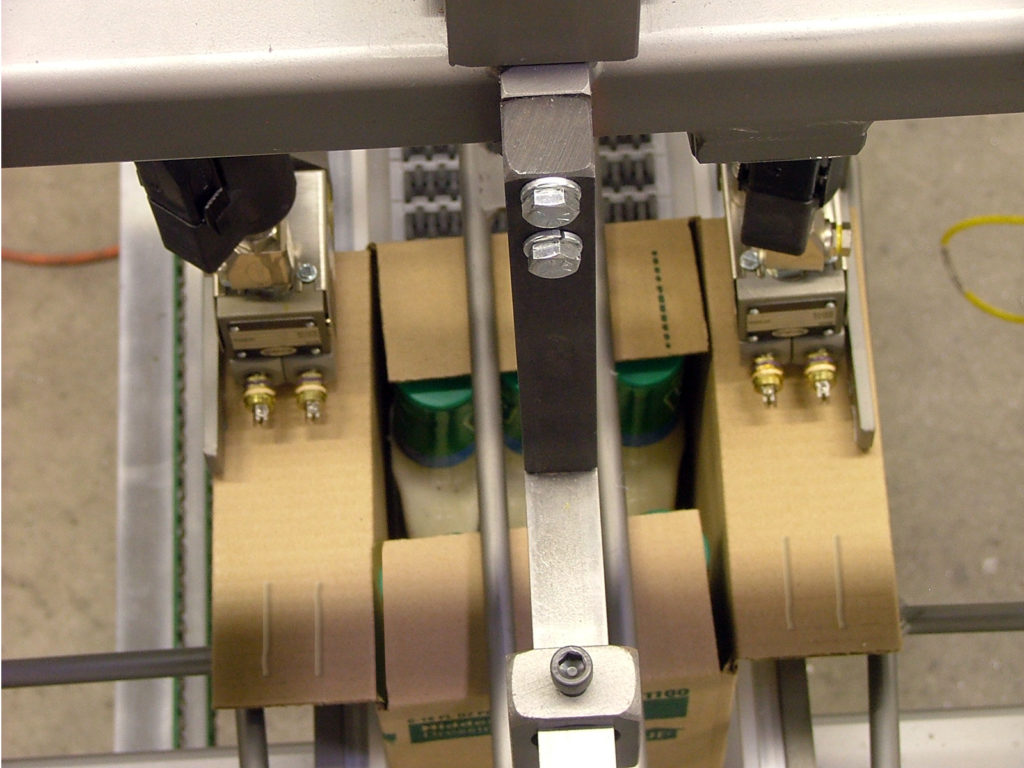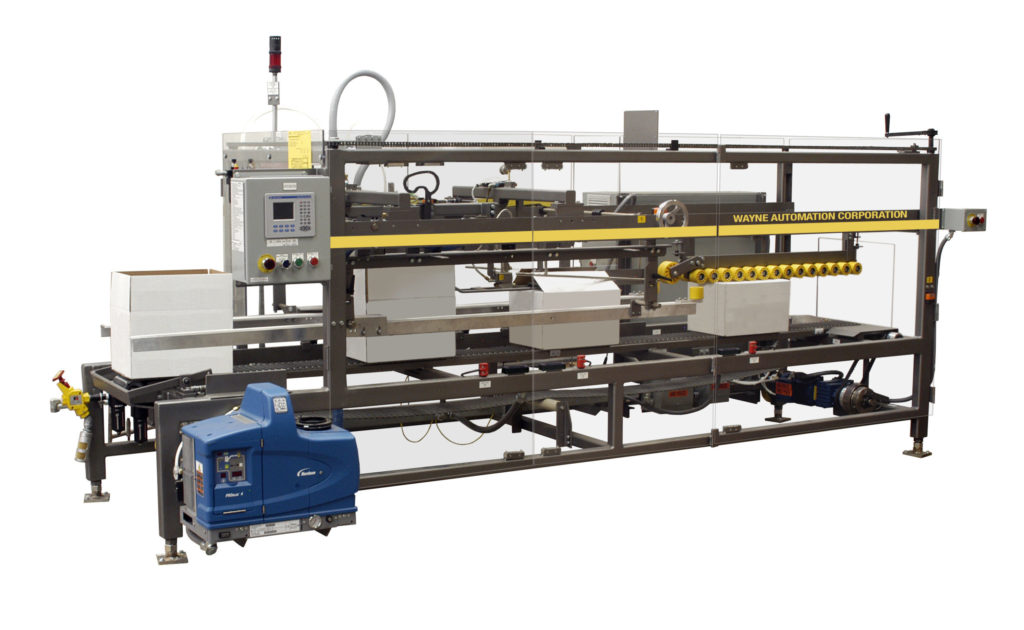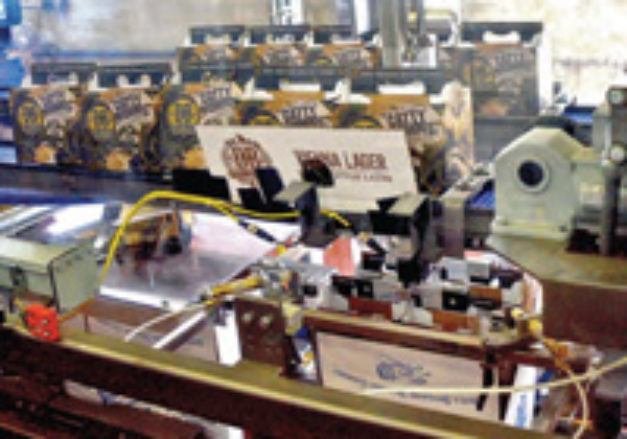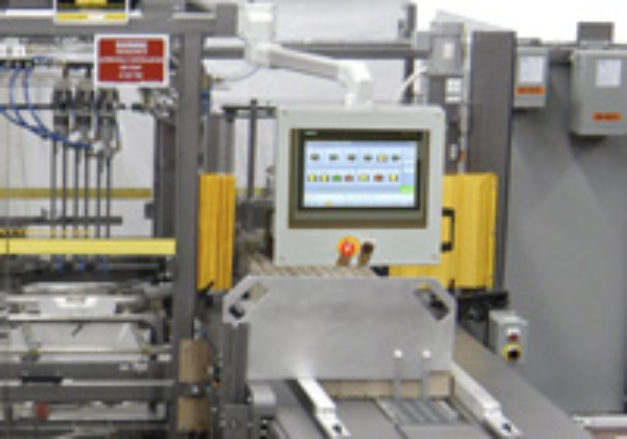 Even as a fairly new industry, packaging automation already boasts a massive global market. With dozens of case sealer machine manufacturers out there, it seems natural that every niche would be covered. However, one corner of the industry is still burdened by significant challenges: small box sealing automation. Whether it be a contract aerosol manufacturer or a behemoth makeup brand, small boxes pose a variety of issues for automated packaging systems. Here are the three biggest challenges small box sealers need to overcome, and how Wayne Automation addresses each.
Even as a fairly new industry, packaging automation already boasts a massive global market. With dozens of case sealer machine manufacturers out there, it seems natural that every niche would be covered. However, one corner of the industry is still burdened by significant challenges: small box sealing automation. Whether it be a contract aerosol manufacturer or a behemoth makeup brand, small boxes pose a variety of issues for automated packaging systems. Here are the three biggest challenges small box sealers need to overcome, and how Wayne Automation addresses each.
Small Boxes are Unstable and Can’t Stand on Their Own
With larger cases, the bigger flaps can help resist the natural springiness of the cardboard, and hold shape effectively. However, the same is not true for small cases. This poses problems even for manual taping, with difficult-to-control flaps creating an obstacle to consistent, secure closure. This is doubly true for automatic box tapers, where consistency is necessary for a fast, effective process. As a result, the best case sealer for small boxes needs to effectively maintain box shape throughout the sealing process.
Wayne Automation ensures consistent box shape with careful engineering that maintains contact along every surface of the box. Our top sealers utilize a roller system to preserve case shape at every step, including compression rollers to set the tape or adhesive joint, ensuring high quality results. This also allows for versatile and flexible systems, capable of rapid changeovers, and even giving manufacturers discretion over tape width.
Manufacturing That Requires Small Boxes Requires High Speeds
 Another main challenge that comes with small box packaging automation is product flow. Imagine company A sells 10,000 units of a product that can be bulk packaged. Now imagine company B wants to sell 10,000 units of a product in smaller boxes. Obviously, a small box is not able to hold as much product as a large box. As a result, packaging speed becomes a major issue. If company B wants to deliver their product in a timely manner, they will need a faster machine to keep up with company A.
Another main challenge that comes with small box packaging automation is product flow. Imagine company A sells 10,000 units of a product that can be bulk packaged. Now imagine company B wants to sell 10,000 units of a product in smaller boxes. Obviously, a small box is not able to hold as much product as a large box. As a result, packaging speed becomes a major issue. If company B wants to deliver their product in a timely manner, they will need a faster machine to keep up with company A.
Wayne recognizes the need for quality packaging at high speeds. That’s why we built our RPS case sealer to top seal up to 80 cases per minute. Whether it’s a small company or a major manufacturer, durable, reliable, and fast end-of-line automation is vital. By removing the challenge of erecting, packing, and sealing enough boxes to get orders out on time, Wayne Automation gives manufacturers the space to better allot resources and grow stronger.
A Small Case is Lightweight, Making Manipulation Difficult
Just as the size of small boxes presents a challenge for case sealer machines that keep boxes upright, the same is true for flap manipulation. Lightweight boxes mean the flaps have more resistance to folding into proper position. As a result, additional systems are needed to ensure proper control, allowing an automatic box taper to make a secure closure. Wayne Automation has designed several solutions to overcome these challenges.
 Our case sealers include complete flap control, utilizing fins to separate major flaps before employing servo-actuated arms to push minor flaps into position. This allows for consistent performance, both with hot-melt glue and tape systems. In addition, a flap conditioner can also be seamlessly incorporated into Wayne systems, providing even greater control for small boxes.
Our case sealers include complete flap control, utilizing fins to separate major flaps before employing servo-actuated arms to push minor flaps into position. This allows for consistent performance, both with hot-melt glue and tape systems. In addition, a flap conditioner can also be seamlessly incorporated into Wayne systems, providing even greater control for small boxes.
Make the Difference for Your Process Today
A case sealer from Wayne can bring your end-of-line process to the next level. Stay ahead of the curve, improve your productivity, and set your business up for success. To learn more about how our products can work for your custom manufacturing process, contact us today.





